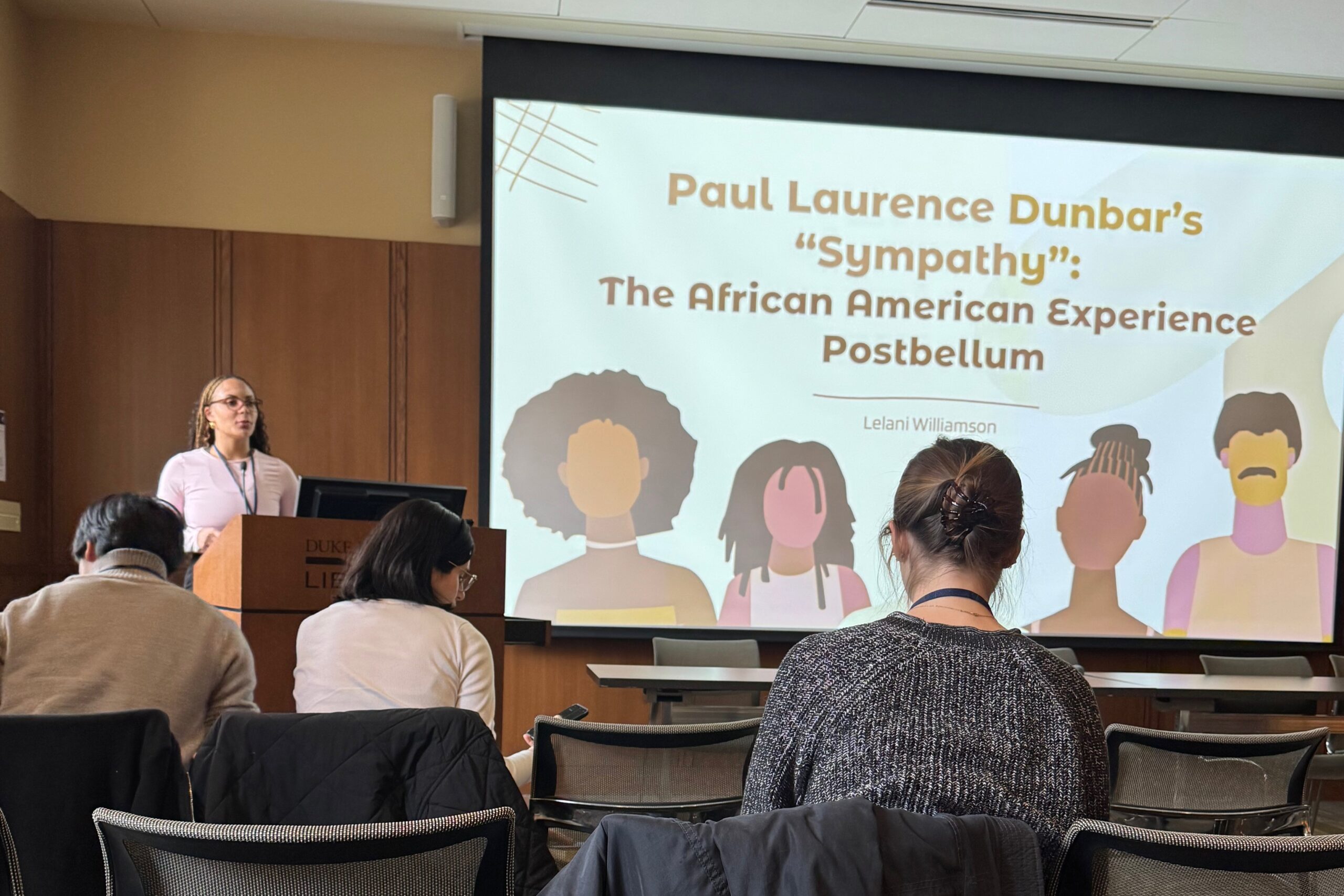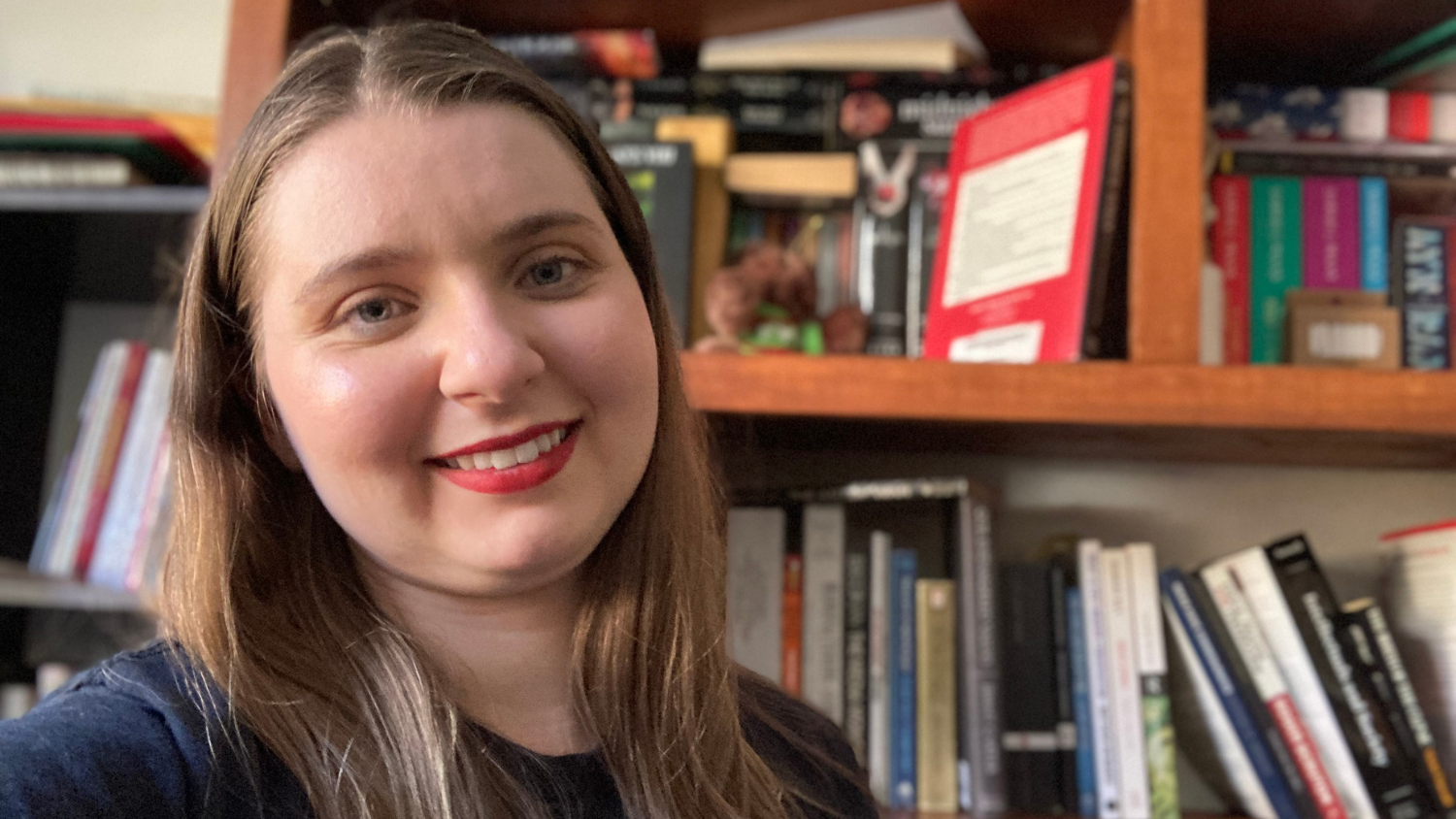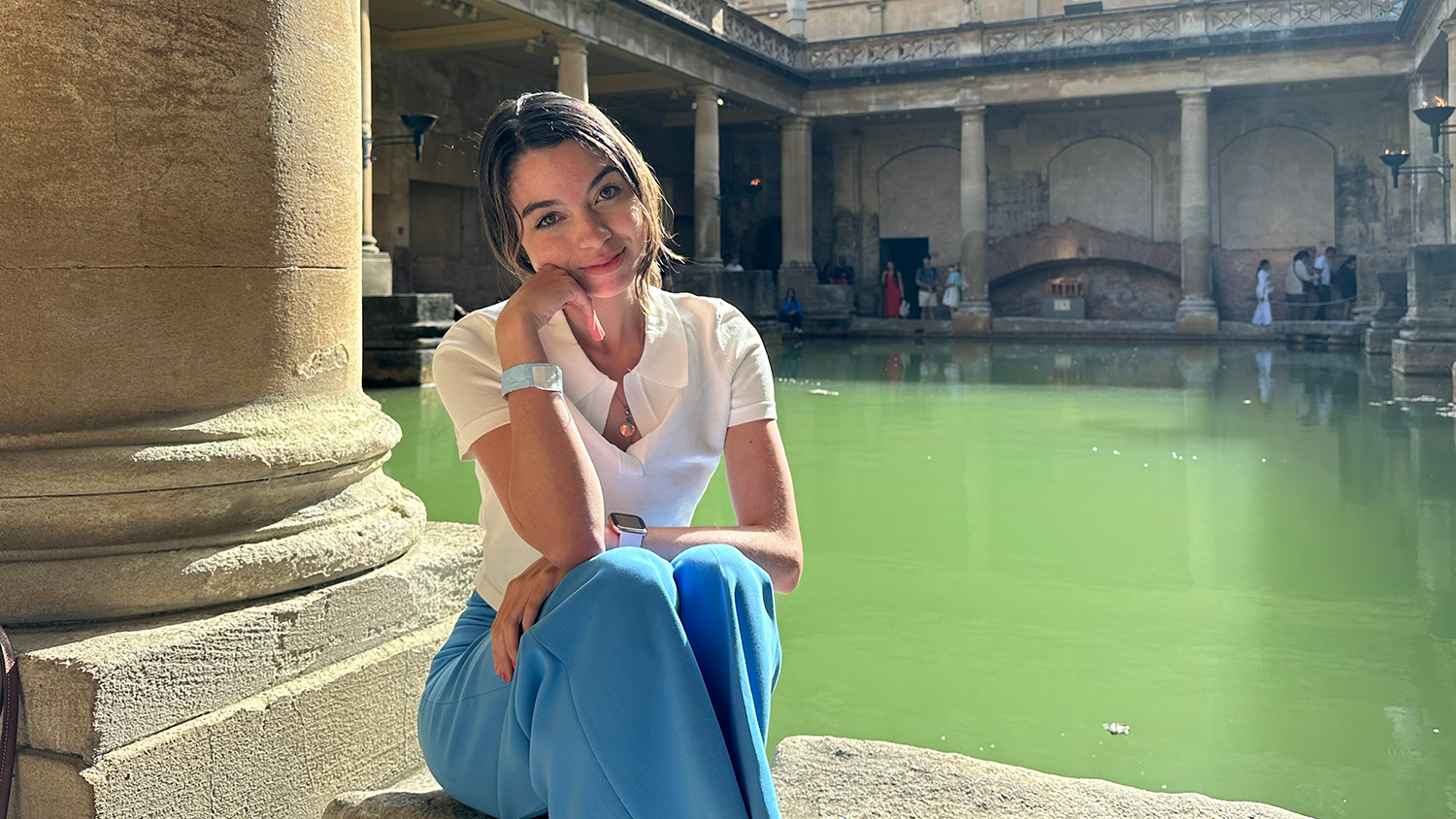Honors Program Student Spotlight: James Hung
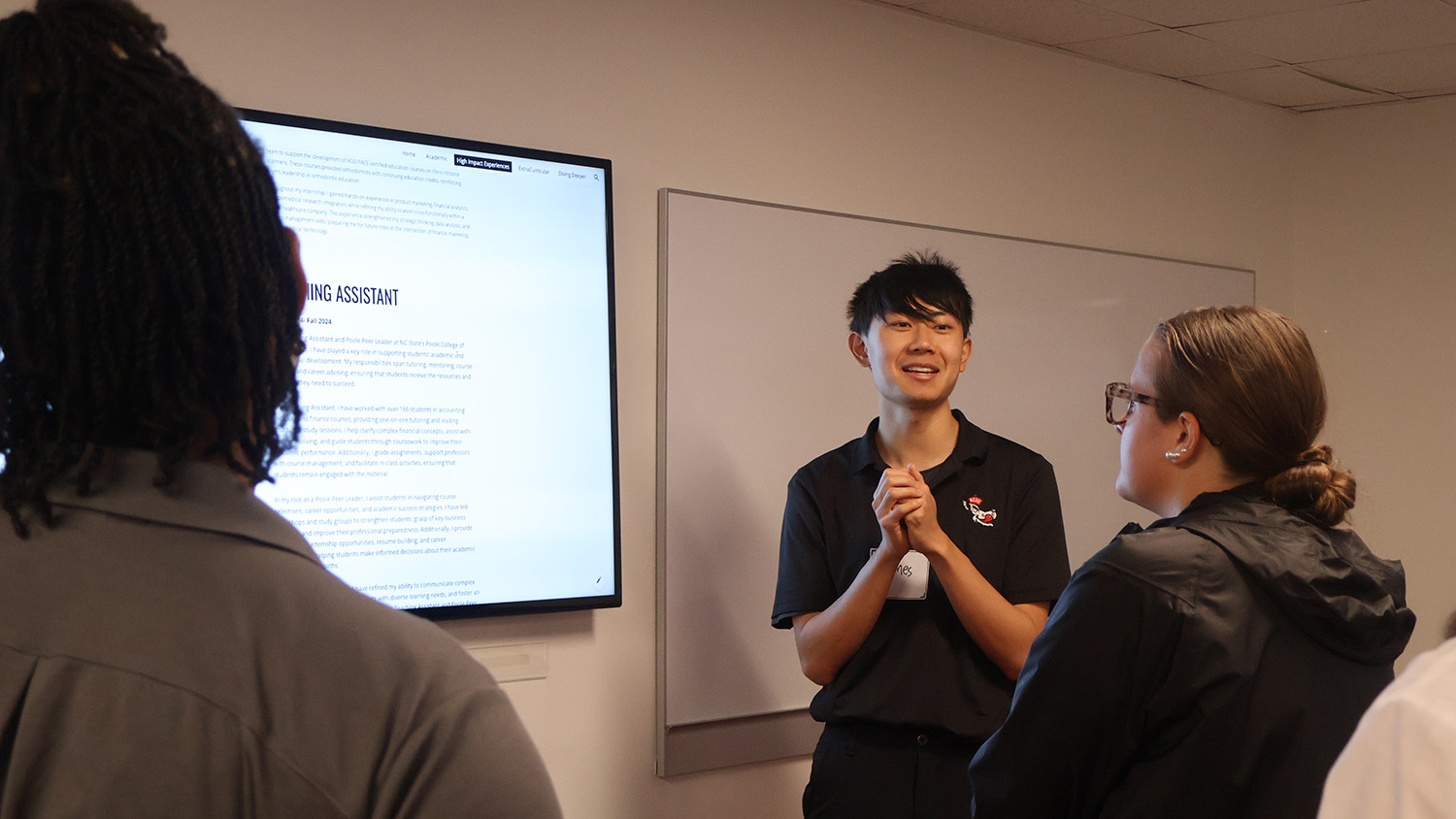
A Special Topics course from Poole College of Management, entitled “Business Research for Undergrads,” gave James Hung a name to put with the feeling he used to get while playing grade school athletics: ‘stereotype susceptibility.’
Hung will be graduating with the University Honors and his Bachelor of Science in Business Administration this May; he joined the University Honors Program as a transfer student in the spring of 2023. Since then, Hung has made himself busy getting involved and trying out lots of experiences to make the most of his only two undergraduate years at NC State.
He has dabbled in Student Government, writing for Technician, peer mentorship and significantly personally impactful undergraduate research.
“I got a promotional email from Poole College about a course called “Business Research for Undergrads” [ACC 495] and I decided to take it. Dr. Rob Whited was my instructor. In the class, we were exposed to a wide variety of academic research in economics, accounting, psychology and public policy. We read a number of academic studies and several Poole faculty presented their own research to the class. One faculty member, Dr. Joe Brazel, spoke to our class and shared his research where he ran an experiment to better understand bias in performance evaluations by audit supervisors.”
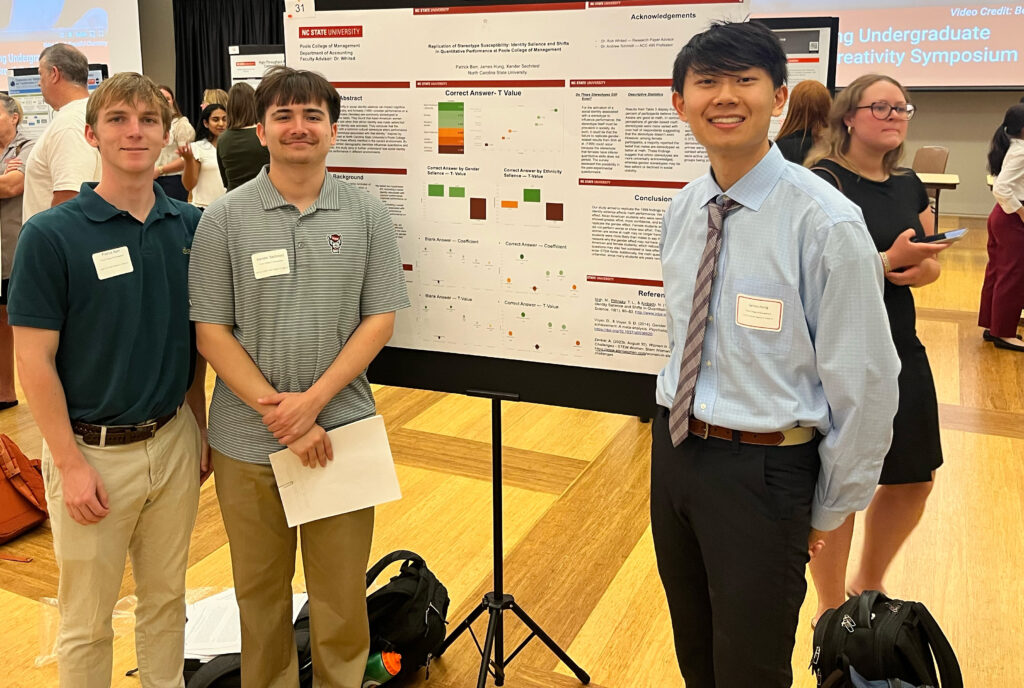
Brazel’s work, as well as another study Whited shared with Hung’s class, “Stereotype Susceptibility: Identity Salience and Shifts in Quantitative Performance,” by Shih, Pitinsky and Anbady (1999), inspired Hung’s interest in how stereotypes can influence performance and impact the equity of a workplace or learning environment.
Hung joined a team with two other undergraduates, Patrick Barr and Xander Sechriest, who began working with Whited in January of this year on a project they have entitled “Replication of Stereotype Susceptibility: Identity Salience and Shifts in Quantitative Performance at Poole College of Management,” a replication study of the original 1999 study conducted by Shih, Pitinsky and Anbady.
“I don’t think we will publish the results yet, since this is only our first run of the study and it’s a replication of the original,” shared Hung.
While Hung has only been involved in the research group since the beginning of this year, it has impacted and inspired him in many ways. He is now considering graduate school for the opportunity to continue in research. He will also soon begin studying for the Law School Admission Test.
“One of the most impactful and transformational experiences I have had was recognizing how deeply stereotype susceptibility has shaped the way I have approached academics and performance. I used to internalize unspoken expectations about what I was supposed to be good at or not good at, based on assumptions others made about my identity.”
Hung is Asian-American.
“When I first learned about stereotype threat, it felt less like a theory and more like someone had finally named the invisible pressure I had been carrying for years,” he said. “There were moments when I second-guessed my abilities, especially in settings where I felt like the only person who looked like me or where I sensed people were surprised by my athletic prowess; I was highly underrepresented while playing lacrosse and cross country at my predominantly white grade school in Cary, North Carolina.
“You think of yourself as an outlier, and that really impacts your self-esteem. Even if no one said anything directly, I could feel the weight of expectations and the fear of confirming negative assumptions. What transformed me was realizing that those stereotypes were not reflections of my ability. They were distortions. Learning how stereotype threat works did more than help me understand myself. It gave me tools to challenge those internal doubts, to reclaim confidence during exams, interviews and presentations, and to recognize that others might be carrying that same invisible pressure.”
Now, instead of letting stereotypes influence how he performs, Hung tries to shape the environment around him for both himself and for others. Beyond his interests in finance and biomedical research, Hung is deeply committed to mentorship and advocacy.
As a teaching assistant, Poole College Peer Leader and Poole College Ambassador, he has guided students in academic and career development while simultaneously promoting global engagement through the Poole Global Corps. His former work on the Student Government Finance Committee and in the Department of Equity and Accessibility allowed him to contribute to resource allocation, financial transparency and inclusive policy-making.
“I work to create spaces where people can show up as their full selves without fear of being reduced to a label,” Hung said. “That shift in perspective has been empowering and has helped me grow not only as a student, but also as a leader, a peer and an advocate. I’ve always been proactive and outspoken, and I try to channel that into doing good. In high school theater I started a racial equity committee to review scripts and costumes before productions. When I was serving as a TA last year, I knew certain students were struggling with disabilities and their absence verifications, so I worked closely with the instructor and the students to establish a more flexible attendance policy.”
Hung hopes that by learning about his experiences with stereotype susceptibility, his peers in the University Honors Program will gain a deeper awareness of how powerful unspoken expectations can be. Even in spaces filled with opportunity and support, like the Honors Program and the greater NC State community, many students carry invisible pressures that shape the way they show up, speak up and perform.
“Understanding that stereotype threat is real and often silent makes everyone more thoughtful peers, better collaborators and more compassionate leaders.”
Hung also hopes his fellow students will recognize that it’s not simply about overcoming personal barriers. It is about rethinking how environments can be created where everyone can thrive.
“When we acknowledge how identity and perception intersect with performance, we can build communities that are not only intellectually rigorous, but also emotionally intelligent. I want my peers to understand that awareness of these dynamics is not a weakness. It is a strength. And when we lean into that awareness, we become more resilient as individuals and more inclusive as a collective so that everyone can realize their full potential and be as successful as they possibly can.”
Hung encourages his peers that may be curious about undergraduate research to pursue it as soon as possible.
“It’s a way to take what we learn in class and use it in real life,” he said. “Research teaches you how to ask good questions, find answers, and think critically and carefully. It also lets you work with professors and learn from them, which is super helpful for college and future jobs.”
During his two year tenure at NC State and in the Honors Program, Hung has completed an impressive amount of Honors coursework. He credits an increased confidence in openly sharing his thoughts and his ability to work with others to his experiences with UHP.
“My favorite part of the Honors Program has been the chance to take unique classes that you can’t find anywhere else,” Hung said. “I really liked learning about different topics, like how cities can be more eco-friendly [“Sustainable Cities and Communities,” Teten, Fall 2024] or how gossip affects people [“The Power of Gossip,” Koester, Fall 2024]… One of my favorite things about “Outbreak” [Goller, Spring 2024] was that I did an assignment about norovirus and then a norovirus outbreak just happened to occur in the real world! It was very interesting… These classes made me think in new ways and helped me understand the world better. I also liked meeting other students who are curious and excited to learn. It made me feel like I was part of a group that really cares about ideas and making a difference. [The UHP] has also given me cool opportunities, like going on the [UHP Upperclassman] Washington D.C. trip this spring, and learning from great professors. I feel like it’s made me grow as a student and as a person.”
- Categories:
